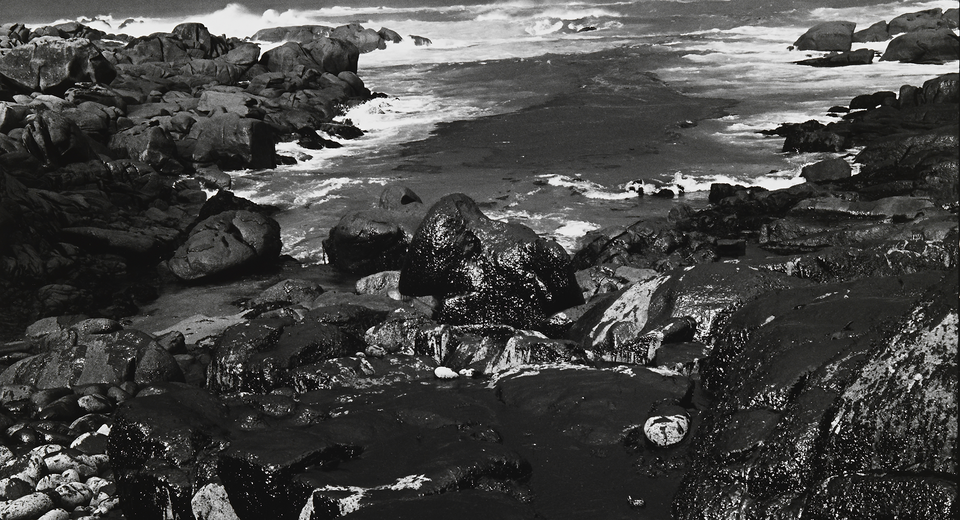Spain. Soiled beach and sea
Paris
Photographic print on baryta paper
When the Prestige sank in November 2002, the oil leaking from its wreck soiled the coasts of Portugal, Spain and France. Photographer Emmanuel Ortiz decided to produce a report on both the effects of the oil slick on the coast and the reaction of the local population to the event. For around a month, he criss-crossed the beaches in three locations: the Galician coast in Spain, the Basque country and the Arcachon basin in France.
A diversity of viewpoints
The different locations chosen by Emmanuel Ortiz for his shots underline the extent to which environmental disasters, and the disasters that ensue, are problems that transcend national borders. Here and there, the photographer captures the portraits of men and women working to clean up coastal pollution. Most of them are volunteers, supervised by the army or the emergency services. They remove fuel oil washed up on beaches or floating at sea, often using rudimentary tools - the imbalance between the resources available and the immensity of the task is sometimes obvious. Emmanuel Ortiz also highlights, as in this photograph, the damage caused by this pollution to ecosystems, contributing to a series of images that have been sadly familiar since the 1970s, that of oil spills.
A series emblematic of the photographer's work
A freelance photojournalist since the 1980s, Emmanuel Ortiz is interested in environmental issues, particularly through the prism of climatic accidents and ecological disasters. He works mainly in black and white. In the selection of photographs chosen by the museum, this choice of colour palette accentuates the contrast between the pollution caused by the oil slick and the environment it affects. In this photograph, for example, the surface of which is largely covered by shiny fuel oil, the difference between the deep black rocks and the white, airy ocean foam that forms against them is striking.
Since the mid-twentieth century, the intensification of maritime transport of hydrocarbons has increased the risk of accidental spills. Following the oil spills caused by the sinking of the Amoco Cadiz (1978) and the Erika (1999), the oil spill caused by the Prestige (2002) accelerated environmental awareness and the strengthening of maritime safety in the European Union. Today, although the number of shipwrecks has fallen, the number of accidents remains high due to the increase in global maritime traffic.
Collection highlight
Discover the must-see works at the Musée national de la Marine.

